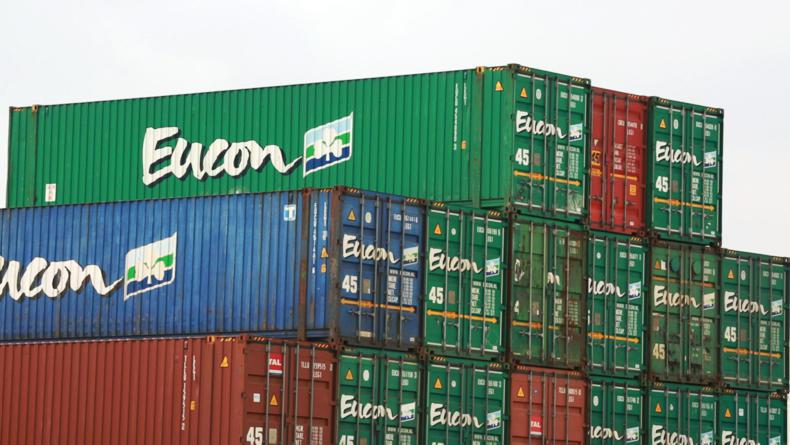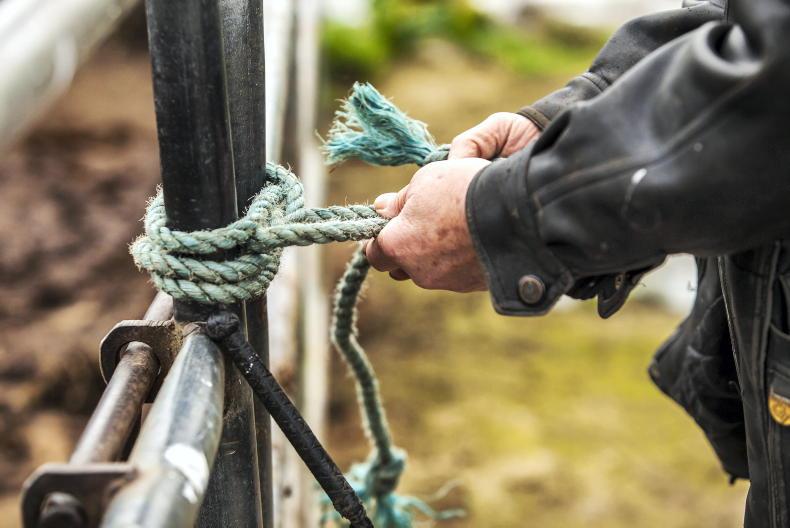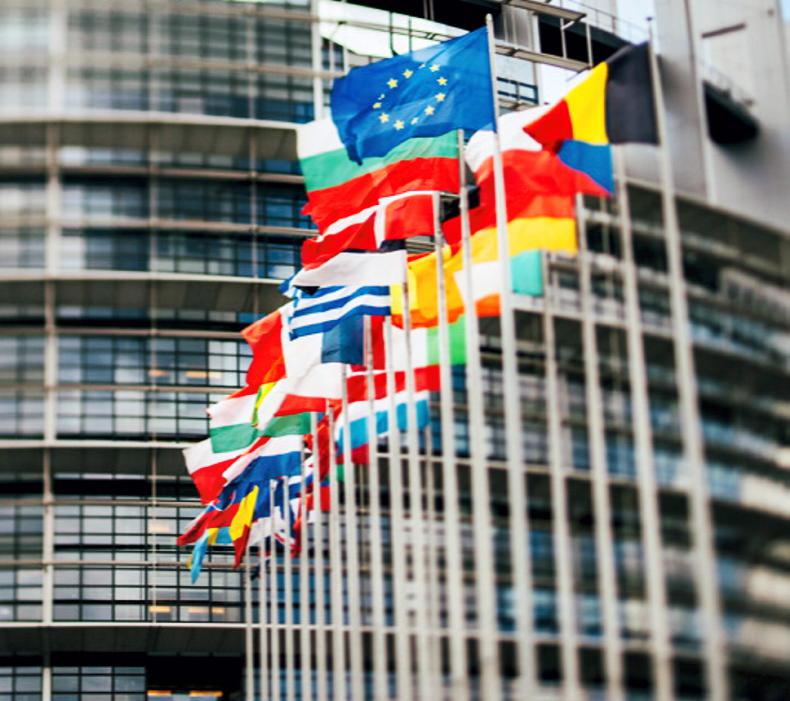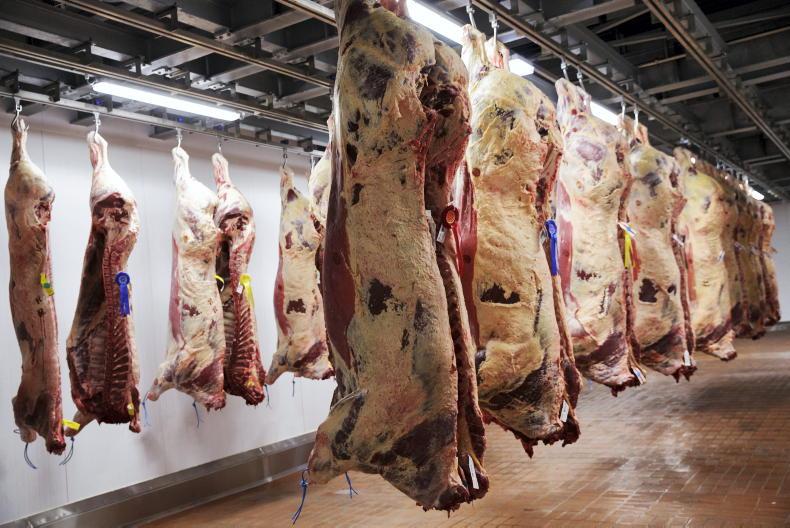Despite the ongoing talks on a trade deal between the EU and UK remaining bogged down in disputes around fishing and state aid, the odds are just weighted in favour of a deal being reached before the end of the year, a leading business consultant has claimed.
Speaking at an online event organised by the Irish Farmers Journal and the Livestock and Meat Commission (LMC) on Thursday morning, senior consultant with Leicestershire-based The Andersons Centre Michael Haverty highlighted that trade deals often go to the wire.
“Our reading of it is that there is a 45% chance of no deal at this point in time. We still believe a deal will get done eventually,” he said.
Crucial
Earlier this month, British Prime Minister Boris Johnson said that an agreement must be reached by 15 October, when European leaders are due to meet.
While Haverty acknowledges that meeting will be crucial, he suggested that negotiations could still run on towards the end of October.
But either way, he is not confident that a comprehensive trade deal that will minimise trade disruption across borders will be struck. That would invariably mean a high level of checks on goods at borders, delays and more administration
“The chances of that look to be decreasing by the day,” he said.
Instead, he believes that the outcome is likely to be a basic free trade deal that does involve zero tariffs and quotas on goods traded between the UK and EU, but without any significant alignment on standards between both parties.
That would invariably mean a high level of checks on goods at borders, delays and more administration for companies – collectively the so-called non-tariff measures.
These non-tariff barriers would essentially be the same if no trade deal was done, so it makes sense for all companies to prepare on this basis, said Haverty.
They also come at a significant cost for business, with a lot of that cost caused by product deterioration when it is delayed at ports.
The estimates presented by Andersons are in the region of £60/t to £80/t (€67/t to €89/t) for dairy products traded between the UK and EU, £50/t to £150/t (€55/t to €167/t) for beef and £75/t to £130/t (€83/t to €144/t) for poultry.
“This is particularly important for the likes of poultry, because it is a lower-value product to start with,” said Haverty.
NI protocol
For the agri-food industry in Northern Ireland (NI) there is the Irish protocol within the Brexit withdrawal agreement, which essentially means that companies can continue to trade into the EU and still have unfettered access to the market in Britain.
So provided the protocol remains intact, these issues around checks on goods should not directly impact NI farmers said Haverty.
But longer term, it is potential value destruction in the market in Britain that is the main issue for farmers in both Ireland and Britain.
The analysis presented by Andersons clearly shows that if the UK pursues free trade deals with the likes of Australia, New Zealand and the US, then this will have a negative impact on margins and leave beef, sheep and dairy farmers totally reliant on future support payments.
Read more
No seasonality and a squeeze on bulls - what future has winter finishing?
Farmers right to call out bad deals
Despite the ongoing talks on a trade deal between the EU and UK remaining bogged down in disputes around fishing and state aid, the odds are just weighted in favour of a deal being reached before the end of the year, a leading business consultant has claimed.
Speaking at an online event organised by the Irish Farmers Journal and the Livestock and Meat Commission (LMC) on Thursday morning, senior consultant with Leicestershire-based The Andersons Centre Michael Haverty highlighted that trade deals often go to the wire.
“Our reading of it is that there is a 45% chance of no deal at this point in time. We still believe a deal will get done eventually,” he said.
Crucial
Earlier this month, British Prime Minister Boris Johnson said that an agreement must be reached by 15 October, when European leaders are due to meet.
While Haverty acknowledges that meeting will be crucial, he suggested that negotiations could still run on towards the end of October.
But either way, he is not confident that a comprehensive trade deal that will minimise trade disruption across borders will be struck. That would invariably mean a high level of checks on goods at borders, delays and more administration
“The chances of that look to be decreasing by the day,” he said.
Instead, he believes that the outcome is likely to be a basic free trade deal that does involve zero tariffs and quotas on goods traded between the UK and EU, but without any significant alignment on standards between both parties.
That would invariably mean a high level of checks on goods at borders, delays and more administration for companies – collectively the so-called non-tariff measures.
These non-tariff barriers would essentially be the same if no trade deal was done, so it makes sense for all companies to prepare on this basis, said Haverty.
They also come at a significant cost for business, with a lot of that cost caused by product deterioration when it is delayed at ports.
The estimates presented by Andersons are in the region of £60/t to £80/t (€67/t to €89/t) for dairy products traded between the UK and EU, £50/t to £150/t (€55/t to €167/t) for beef and £75/t to £130/t (€83/t to €144/t) for poultry.
“This is particularly important for the likes of poultry, because it is a lower-value product to start with,” said Haverty.
NI protocol
For the agri-food industry in Northern Ireland (NI) there is the Irish protocol within the Brexit withdrawal agreement, which essentially means that companies can continue to trade into the EU and still have unfettered access to the market in Britain.
So provided the protocol remains intact, these issues around checks on goods should not directly impact NI farmers said Haverty.
But longer term, it is potential value destruction in the market in Britain that is the main issue for farmers in both Ireland and Britain.
The analysis presented by Andersons clearly shows that if the UK pursues free trade deals with the likes of Australia, New Zealand and the US, then this will have a negative impact on margins and leave beef, sheep and dairy farmers totally reliant on future support payments.
Read more
No seasonality and a squeeze on bulls - what future has winter finishing?
Farmers right to call out bad deals










SHARING OPTIONS